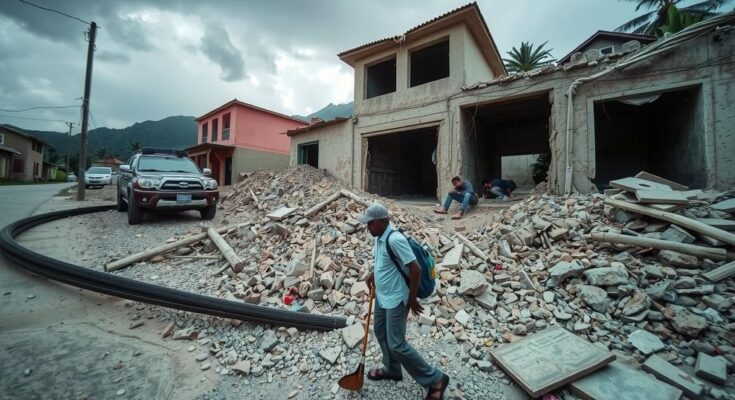This article highlights key historical events that occurred on January 12, including Andrew Carnegie’s anti-trust stand in 1912, the 1919 peace negotiations resulting in the League of Nations, Hattie Caraway’s landmark election as a U.S. Senator in 1932, the devastating earthquake in Haiti in 2010, and recent military actions by the U.S. and its allies in response to Houthi attacks in 2024.
On January 12, significant historical events unfolded across different years, reflecting crucial moments in global affairs. In 1912, Andrew Carnegie supported former President Theodore Roosevelt’s anti-trust views, challenging President Taft’s trust dissolution efforts during testimony before the Stanley Committee. In 1919, peace negotiations post-World War I commenced in Paris among leaders including U.S. President Woodrow Wilson and others, forming the League of Nations. Progress continued in 1932 when Hattie Caraway became the first woman elected to serve a full term in the U.S. Senate.
The wartime experiences influenced daily life, exemplified in 1943 when the Office of Price Administration announced the replacement of traditional frankfurters with “Victory Sausages” due to World War II constraints. An important milestone occurred in 1986 when U.S. Representative Bill Nelson embarked on a space mission aboard the space shuttle Columbia, accompanied by Franklin Chang-Diaz, marking a significant achievement for Hispanic American representation in space. In 1994, President Bill Clinton initiated an investigation into the Whitewater land deal, demonstrating the intersection of politics and media scrutiny.
Tragedy struck on January 12, 2010, when a magnitude-7 earthquake devastated Haiti, resulting in at least 100,000 fatalities and initiating a cholera outbreak that claimed thousands of additional lives in subsequent years. This disaster highlighted the vulnerabilities in Haiti’s infrastructure. Most recently, January 12, 2024, saw the United States and allied nations responding to Houthi attacks in the Red Sea with a large-scale military retaliation, emphasizing ongoing geopolitical tensions in the region.
This article outlines notable historical events occurring on January 12th across various years, illustrating the societal, political, and international shifts that have shaped history. From pivotal moments in U.S. Senate representation to the complexities of international diplomacy following World War I, these events demonstrate the enduring impact of historical decisions. Furthermore, the catastrophic earthquake in Haiti in 2010 serves as a reminder of both natural disasters’ devastating effects and ongoing humanitarian challenges faced by nations grappling with infrastructure issues. Recent military engagements underline persistent global conflicts and responses to regional threats.
In conclusion, January 12 marks the remembrance of multiple significant historical events that have greatly influenced political, social, and humanitarian landscapes. From the formation of international coalitions in the aftermath of World War I to the devastating earthquake in Haiti, each event serves as a reflection of humanity’s challenges and progress. It is imperative to recognize how historical events shape current affairs, emphasizing the need for ongoing vigilance and responsiveness to global challenges.
Original Source: www.upi.com




